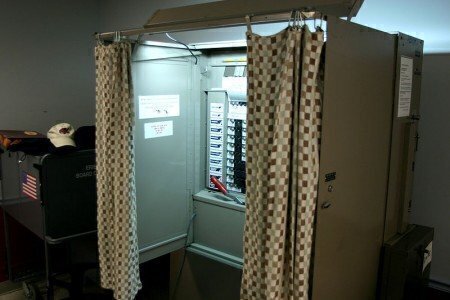The presidential race has four more primary and caucus events in February before the big March 1 event known as Super Tuesday. Here’s a quick look at what to expect.
 Nevada and South Carolina are next up on the campaign schedule, and there are four different events there between February 20 and February 27. The races will be closely watched for clues as both parties get ready for a big March 1 event. Also known as the SEC primary, the March 1 event involves 14 states in some capacity, so any February momentum will be crucial for candidates.
Nevada and South Carolina are next up on the campaign schedule, and there are four different events there between February 20 and February 27. The races will be closely watched for clues as both parties get ready for a big March 1 event. Also known as the SEC primary, the March 1 event involves 14 states in some capacity, so any February momentum will be crucial for candidates.
Event 1: Democratic Caucus in Nevada, Saturday, Feb. 20, 2016 (35 Delegates/8 Super Delegates)
Officially known as the Non-binding Precinct Viability Caucuses, these party member meetings aren’t a primary. But the outcome helps determine the number of delegates sent from Nevada to the Democratic National Convention.
Registered Democrats vote on caucus day, and registered voters can change their party affiliation on caucus day, but voting is restricted to Democrats. There are 35 delegates at stake, and they aren’t distributed and bound to candidates until May.
In addition, eight Super Delegates will go to the national convention as unpledged delegates.
Event 2: Republican Primary in South Carolina, Saturday, Feb. 20, 2016 (50 Delegates/3 Super Delegates)
Campaigning is already underway in what will be an important test for leading GOP candidates Donald Trump, Ted Cruz, John Kasich, Jeb Bush and Marco Rubio.
The Republicans send 50 elected delegates to their national convention. Of that total, 21 delegates are awarded to winners in 7 congressional districts. The person who wins each district gets all 3 delegates in that district. An additional 26 delegates go the overall winner of the primary in South Carolina.
And South Carolina sends 3 Super Delegates to the GOP convention pledged to the overall winner in the state.
Event 3: Republican Nevada Caucuses, Tuesday, Feb. 23, 2016 (30 Delegates)
This event is restricted to registered Republicans in Nevada for caucuses that take place for two hours. There are 30 delegates at stake here, and the delegates are awarded proportionally to any candidate that gets at least 3.3 percent of the vote.
The delegate allocation here can be changed in May to reflect candidates who dropped from the presidential race after the caucuses were conducted.
Event 4: Democratic Primary in South Carolina, Saturday, Feb. 27, 2016 (53 Delegates/6 Super Delegates)
The Democrats send 53 elected delegates to their national convention. Of that total, 35 delegates are assigned proportionally based on voter counts, and a candidate must get at least 15 percent of votes to get delegates in a congressional district. An additional 18 delegates go the overall winner of the primary in South Carolina.
And South Carolina sends 6 unpledged Super Delegates to the Democratic convention.
Then there is Super Tuesday on March 1, just three days after the Democratic primary in South Carolina. It is one of two big Tuesdays in March, with the second big primary event on March 15.
On March 1, 23 percent of delegates are chosen for the Democrats in 12 states, while 31 percent of delegates are up for grabs for the Republicans. Then, 17 percent of Democratic delegates are picked on March 15, and 16 percent of GOP delegates are selected in states such as Florida and Ohio that same day. At that point, 50 percent of all Democratic delegates and 60 percent of all Republican delegates will be selected.






